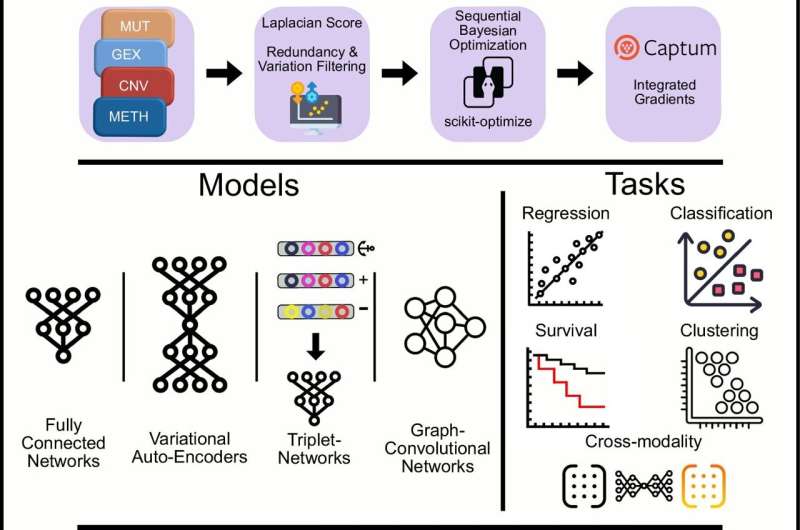The researcher has been working for some time on developing tools that use artificial intelligence to make more precise diagnoses and that also determine the best form of therapy tailored to individual patients.
Akalin’s team has now developed a toolkit called Flexynesis, which does not rely solely on classical machine learning but also uses deep learning to evaluate very different types of data simultaneously—for example, multi-omics data as well as specially processed texts and images, such as CT or MRI scans.
“In this way, it enables doctors to make better diagnoses, prognoses, and treatment strategies for their patients,” says Akalin. Flexynesis is described in detail in a paper published in Nature Communications.
“We are running multiple translational projects with medical doctors who want to identify biomarkers from multi-omics data that align with disease outcomes,” says Dr. Bora Uyar, first and co-corresponding author of the publication.

